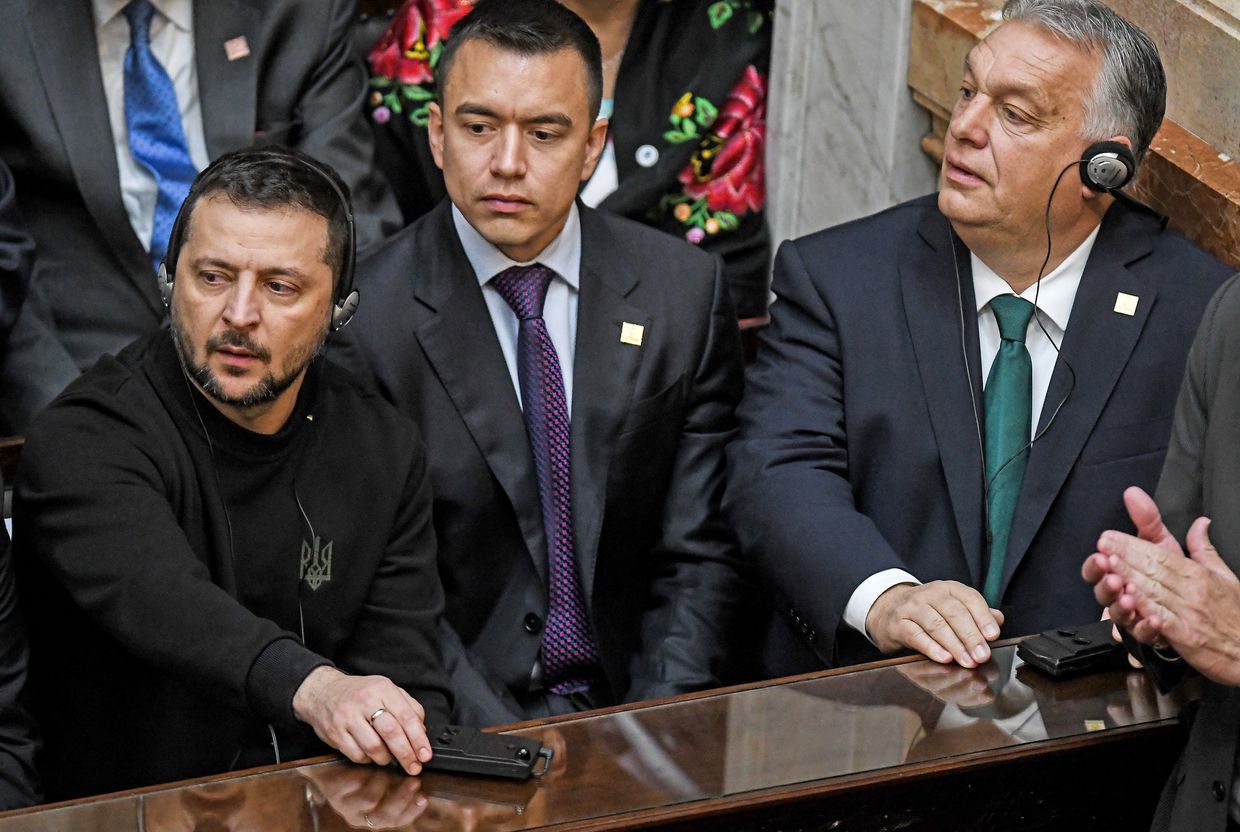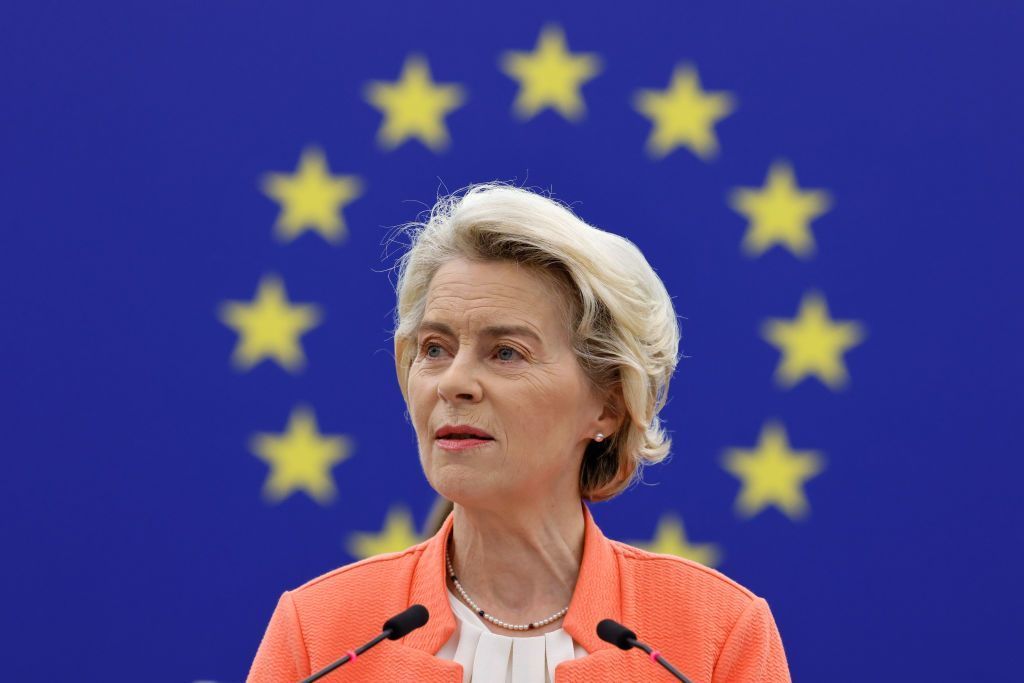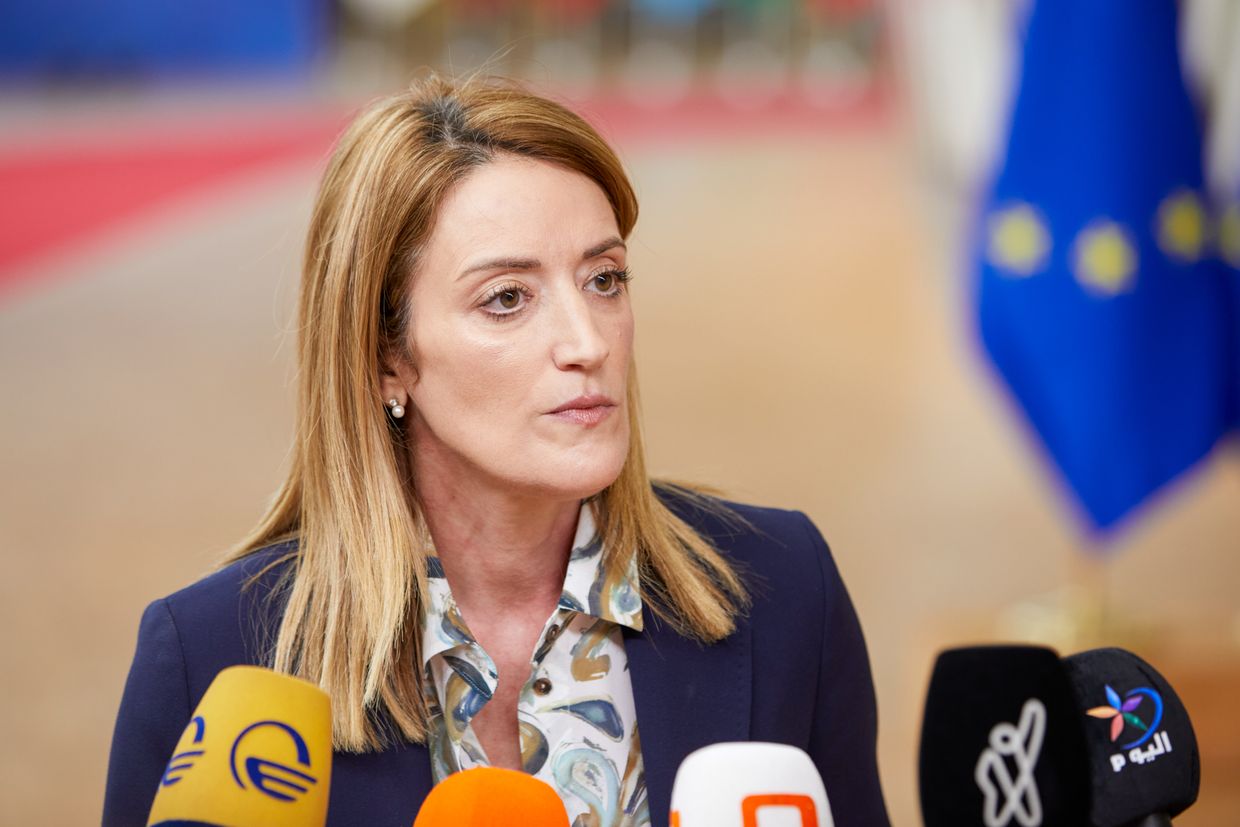The European Council summit must address various concerns pertaining to Ukraine's EU membership in order to avoid a "hard no" on the accession talks, European Parliament President Roberta Metsola said during a press conference on Dec. 14.
Hungary said it would oppose the launch of the negotiations talks during the two-day summit, pointing out that Ukraine is embroiled in a war and has not fulfilled all the seven recommendations presented by Brussels.
A key point of dispute is Ukraine's language law, which Budapest claims is discriminatory toward Ukraine's Hungarian minority, an accusation that Kyiv denies.
Commenting on Hungary's Prime Minister Viktor Orban's concerns, Metsola pointed out that Ukraine made progress on the minority issues.
Kyiv recently adopted amendments to the national minorities law based on recommendations of the Venice Commission, an advisory body to the Council of Europe.

Metsola added that disagreements are common during European Council discussions on related topics, such as sanctions packages against Russia: "We've always wondered whether there would be unanimity, and indeed there was."
Speaking to Ukrainian journalists, Metsola emphasized moral responsibility tied to financial support for Ukraine and the decision on the accession talks. Closing the door to Ukraine would be a direct gift to Russian dictator Vladimir Putin, she noted.
The head of the EU's legislative body said that both Ukraine and Moldova have delivered on the needed reforms under "most difficult conditions."
Metsola warned against inaction on the EU's side: "If we leave a vacuum, it will be filled with other actors with agendas very different than ours."
"The European Parliament's position is very clear: enlargement strengthens our continent. It is an investment in peace; it is an investment in security," she stressed.














